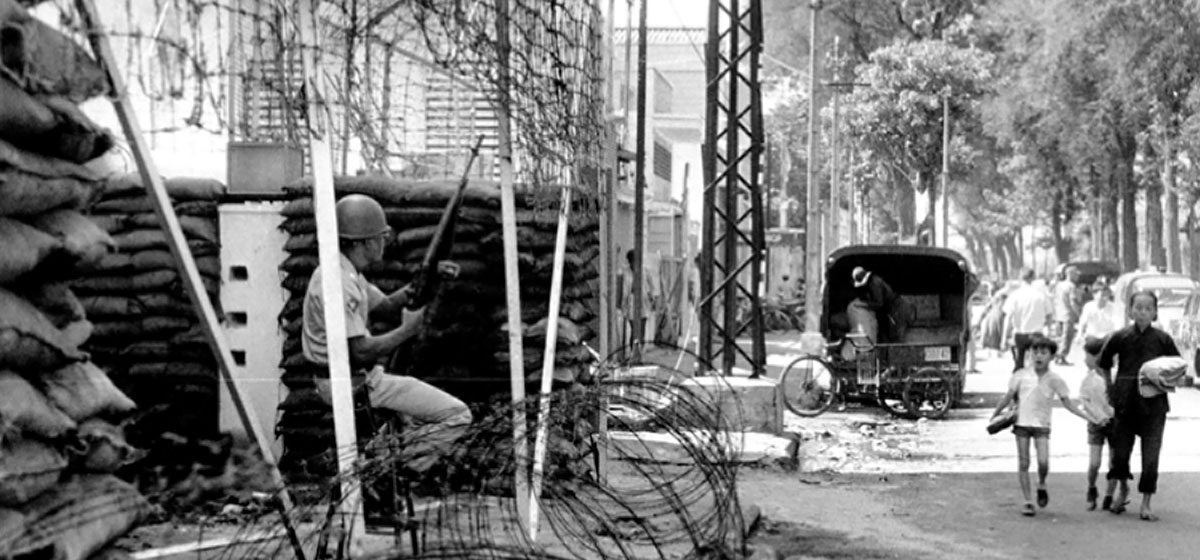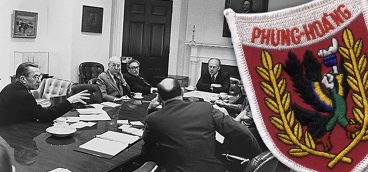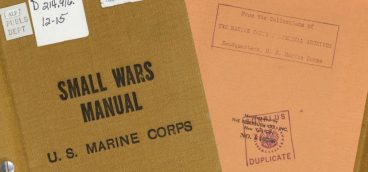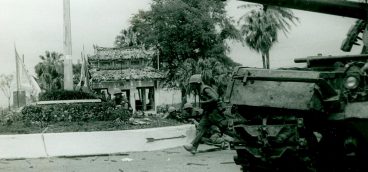Shined Shoes Can Save Your Life

A few weeks ago, in a post about J. D. Vance’s book, “Hillbilly Elegy,” I mentioned in passing that I was convinced that having spit-shined my Army combat boots may have saved my life. I didn’t elaborate, and since then several dozen people have inquired about that brief aside. So here’s the story.
To understand what happened, we have to revisit my checkered career as a military policeman in the US Army in the early 1970s. And we have to understand something about the military prison system of the time (bear with me…)
In the 1950s and 1960s, the worst prisons in America weren’t in Louisiana or Mississippi, they were in the US Army. The Army prisons—or stockades, as they are called—shared all the problems of civilian prisons, including violent and often emotionally challenged guests, overcrowding, drug use, racial animosity, and so on. But the military added on another stressor: brutal, untrained prison guards who were often not much better than the prisoners they were guarding.
In the Army, if you had really, really screwed up, but not quite bad enough to go to jail, you were made a prison guard. How was that likely to work out?
In the lull between the end of the Korean War and when Vietnam began to heat up, the Army was able to ignore the increasingly dire conditions at its stockades. But once Vietnam got hot it was only a matter of time before the lid blew off.
That lid blew in 1968 when a mutiny occurred at The Presidio Stockade in San Francisco and a deadly riot broke out at the stockade in Long Bình, Vietnam. In the Presidio event, 14 soldiers were charged with mutiny and, under military law, could have been executed. (In fact, they ended up with relatively light sentences.)
Long Bình was much worse. The “Long Bình Jail,” or LBJ, named for our beloved President, was the worst of the military prisons (maybe tied with the nearby Marine brig). Located roughly 15 miles from Saigon in Biên Hòa Province, the Long Bình Post was at the time the largest military base in the world, home to some 50,000 US troops. Matters were already tense at Long Bình following a major attack on the base during the Tet Offensive in January of 1968 and the assassination of Martin Luther King that April.
The riot at Long Bình broke out on the night of August 29, 1968, and when it finally ended after a weeklong stalemate, one man was dead and 115 prisoners and guards had been injured. 129 courts martial were imposed for crimes ranging from murder to mutiny to aggravated assault. Despite all this, the riot generated little publicity and it appeared that the Army could sweep its correctional problems under the rug.
Astonishingly, the Army didn’t do that. Even more improbably, the Army did something very smart. It surveyed prison systems all across America and around the western world and noted the most promising approaches to all the main issues: overcrowding, racial tensions, drugs, etc. Then it asked the best corrections experts in the world to design a curriculum to train soldiers to become prison guards (or “correctional specialists,” to use the Army lingo). Truly, if I hadn’t been part of it, I wouldn’t have believed it.
And the Army didn’t just assign the usual bozos to attend the Correctional Specialist Academy at Fort Gordon, Georgia. First, it insisted that all prospective attendees be trained as combat infantrymen (just in case, I suppose). Next, it insisted that every attendee be a trained military policeman and to have graduated in the top quarter of his class at Military Police School.
As if that weren’t enough, you couldn’t just ask to attend the Academy, you had to be invited. Finally, even if you were invited you had to accept – they wanted volunteers.
So I “volunteered.” That is to say, shortly before I graduated from MP School I was summoned to the office of a colonel, who invited me to attend the Academy. “I think, young man, that you would make a fine prison guard!” he said. I’d never been so insulted in my life, and I replied, “You, sir, are full of s!#t.”
Well, no, of course I didn’t say that to a full-bird colonel, that’s only what I was thinking. Instead, I said, “I’m sure I would be a lousy prison guard, sir. I’d be a much better cop.”
“What the Army needs, son,” he continued, “is prison guards and combat infantrymen. Take your pick.” I saluted the fellow and said, “I’ve always wanted to be a prison guard, sir!” That’s how you “volunteer” in the Army.
And so off I went to Correctional Specialist Academy to become a “correctional specialist.” (Today, in case you’re wondering, the Army calls these people “internment/resettlement specialists.”)
To my continuing amazement, the Academy course was exceptionally good—a damn sight less annoying and more useful than anything I’d learned at Harvard Law School. When we completed the course we were the best-trained prison guards in the world. As one of our instructors (a Brit) put it, “If you lined up the tens of thousands of prison guards in the world according to quality, of the best 1,000 at least 996 would be Academy graduates.” I guess there wasn’t that much competition…
When you graduated from the Academy there were only two places you were going to be assigned: The Presidio in San Francisco or Long Bình in Vietnam. I’m guessing you are thinking to yourself, “If this guy was so fantastically unlucky as to have been the only person at Harvard Law School to be drafted in the entire history of the War in Vietnam, I’m guessing he didn’t get sent to San Francisco.”
And you would be right, I didn’t. I was the Joe Btfsplk of the 1960s.
So far the Army had done everything right on the corrections front. But, this being the Army, things were about to get SNAFU’d, as we’ll see next week.
Next up: How Shined Shoes Can Save Your Life, Part II





